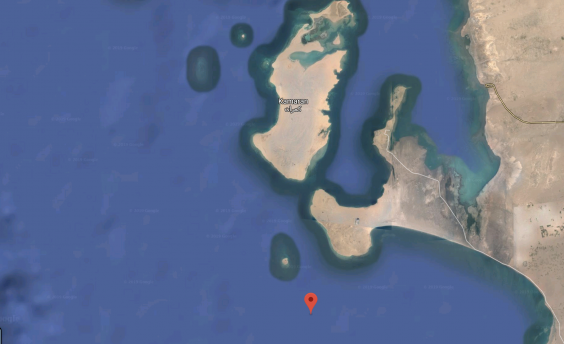‘Ticking time bomb’: Threat of oil tanker explosion could cause one of history’s largest spills
A dilapidated tanker holding over 1 million barrels of crude oil could explode off the coast of Yemen, sparking one of the world’s largest oil spills, experts have warned.
The United Nations said this week that Yemen’s Houthi rebels, who control the nearby Red Sea port, have once again refused a technical team access to the decaying Safer tanker.
The Yemen-owned vessel is moored off Ras Isa and was once an offshore platform for vessels landing crude oil from a nearby pipeline to the central province of Marib.
Experts described the vessel as a ticking time bomb, saying it is at risk of exploding due to a dangerous build-up of volatile gases released from the oil it carries and a lack of maintenance of the ship.
The vessel is also disintegrating due to saltwater corrosion.
Russel Geekie, a spokesman at the UN’s Office for the Coordination of Humanitarian Affairs, told The Independent on Tuesday that the UN remained ”deeply concerned by the environmental threat” posed by the decaying tanker.
“The permits are still pending and discussions continue to secure them. The UN stands ready to deploy a technical team as soon as the necessary permits are issued,” he added.
Mark Lowcock, the UN’s emergency relief coordinator and under-secretary-general for humanitarian affairs, had said on Thursday that despite the Houthis requesting help from the UN and promising to facilitate the work, they continue to delay access.
He added that the vessel is “at risk of spilling up to 1.1 million barrels of into the Red Sea”.
“The UN assessment team had planned to deploy to the tanker next week, but the necessary permits remain pending with the (Houthi) authorities”, he told an 18 July security council meeting.

“Discussions continue to resolve this as quickly as possible,” he added.
The UN and experts say that an urgent assessment is needed on the vessel, which is supposed to be constantly tended to.
Inert gasses must be injected into the air space in the oil chambers of the ship to stop the build up of volatile gasses and prevent catastrophe.
Dr Ian Ralby, a maritime and security expert who heads up I R Consilium that researched the tanker, said that according to his sources in Yemen the last time inert gasses were inserted into the chambers of the vessel was in June 2017.
He said in April chunks of the vessel started to come off due to corrosion, meaning the vessel could be vulnerable to splitting in two.
Calling it a “massive floating incendiary” he warned that if it did explode, it would create an environmental catastrophe that would stretch past Yemen’s shores, to Saudi Arabia and as far as Eritrea, Sudan and even Egypt.
He added the tanker itself was connected to the Ras Isa-Marib pipeline which he said contained an additional million barrels of crude which could also potentially spill into the sea.
“You’re talking about one of the largest oil spills in history,” he told The Independent.
“A 2-million-barrel oil spill would potentially kill off all the coral in the Red Sea,” he added.
Doug Weir, of the Conflict and Environment Observatory that first raised the issue of the tanker last year, said at the heart of the issues is an estimated $80m (£64.3m) of crude oil aboard the vessel.
The cash-strapped Houthis want guarantees they will have access to the revenues of the oil, explaining their reluctance to allow access to the tanker, or for it to be towed away.
The tanker was also meant to be part of a withdrawal agreement in key Red Sea ports outlined in a peace agreement signed by both the Houthis and the Saudi-backed recognised government in Stockholm last year.
Last week the recognised Yemen government sounded the alarm in a video they posted to Twitter.
“The tanker should lie on a point of cooperation, but it is still heavily contested. If the UN can’t get the technical assessment done then it does leave much hope of resolving the crisis,” Mr Weir added.
Yemeni Government warns of a looming Huge Oil Spill into the Red Sea due to Houthis’ obstruction to maintenance works of crude oil tanker carrying more than a million barrel of crude oil. pic.twitter.com/Aiz1qwNeFH
— رئاسة مجلس الوزراء اليمني (@Yemen_PM)

 Yahoo News
Yahoo News 
